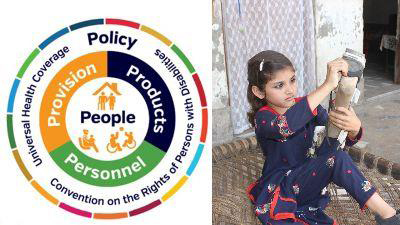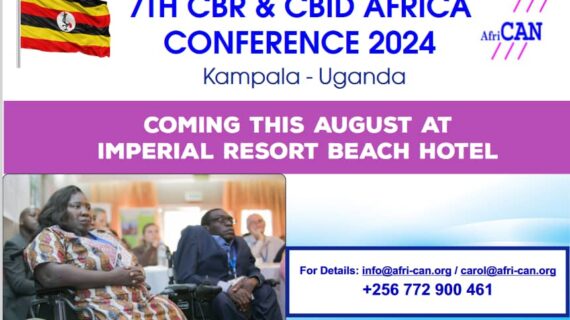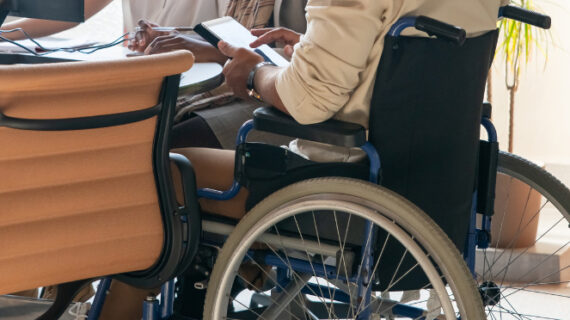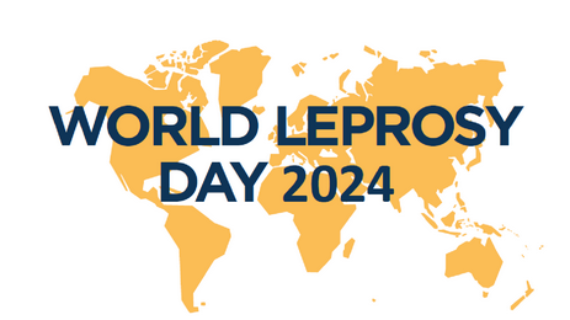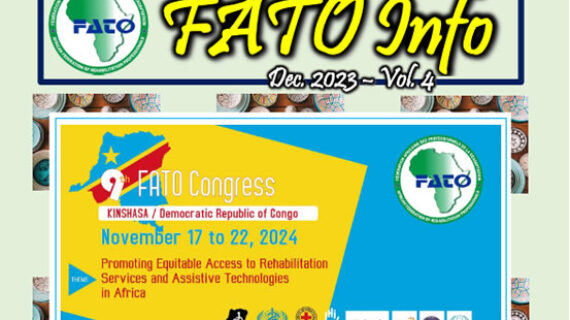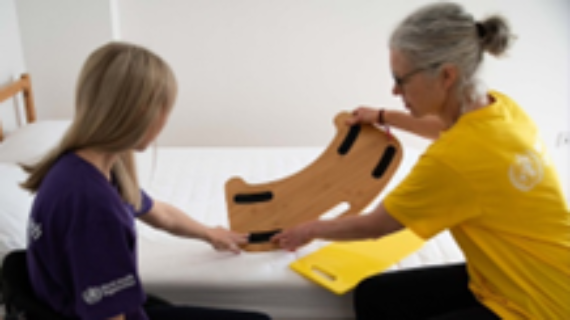Global Report on effective access to Assistive Technology (GReAT) Summit 2019: save the date
We are thrilled to announce that the next GREAT Summit will be held this year in Geneva on the 22nd and 23rd August 2019, at WHO HQ. This second GREAT Summit will serve as a global consultation towards the development of a Global Report on Assistive Technology, which was requested by the 71st World Health Assembly within the resolution improving access to assistive technology.
The Report will shed light on current need and unmet need for AT, as well as outlining recommendations and a framework for action to improve access.
A call for applications for members of an ad-hoc advisory group of experts is open until 28 February 2019. A call for authors will also be published soon which will be shared through the GATE community network.
The first GREAT Summit was held in Geneva in 2017 and brought together nearly 200 stakeholders to discuss research, education and innovation related to assistive technology policy, products, personnel, provision and use.
Assistive technology within the DFID Disability Inclusion Strategy 2018-2023
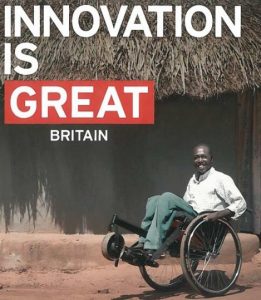 On December 3rd 2018, the UK Department for International Development (DFID) launched the first ever Disability Inclusion Strategy. As shown in the diagram, improving access to appropriate and affordable assistive technology is one of the 4 overarching requirements necessary to achieve the key objectives of the strategy. Assistive technology is vital to mainstream disability inclusion across all sectors and for a world where people with disability are engaged, empowered and able to enjoy their fundamental rights. This five year strategy outlines strategic pillars for action to fulfil the commitments made during the Global Disability Summit, as well to progress towards the realization of the Convention on the Rights of Persons with Disabilities and the Sustainable Development Goals.
On December 3rd 2018, the UK Department for International Development (DFID) launched the first ever Disability Inclusion Strategy. As shown in the diagram, improving access to appropriate and affordable assistive technology is one of the 4 overarching requirements necessary to achieve the key objectives of the strategy. Assistive technology is vital to mainstream disability inclusion across all sectors and for a world where people with disability are engaged, empowered and able to enjoy their fundamental rights. This five year strategy outlines strategic pillars for action to fulfil the commitments made during the Global Disability Summit, as well to progress towards the realization of the Convention on the Rights of Persons with Disabilities and the Sustainable Development Goals.
Assistive products, essential medicines, diagnostics and medical devices in a unique package
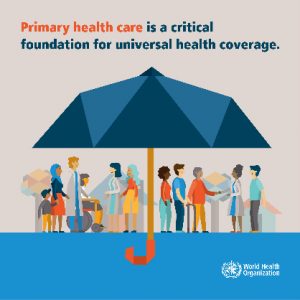 WHO recognizes that medicines and health products (including assistive products, diagnostics and medical devices) are essential components within Universal Health Coverage. In January 2019, WHO hosted a consultation with Member States and relevant stakeholders and for the first time the Priority Assistive Products List (APL), Model List of Essential Medicines, Essential Diagnostics List and Priority Medical Devices Lists were discussed as a package. These lists have been powerful tools in terms of increasing awareness, mobilizing resources and improving access medicines and health products in many countries. This consultation represented the first step towards harmonizing and combining these lists as part of one comprehensive tool. The alignment across these ongoing areas of work will ensure a more person-centred and integrated approach to the way health services are delivered.
WHO recognizes that medicines and health products (including assistive products, diagnostics and medical devices) are essential components within Universal Health Coverage. In January 2019, WHO hosted a consultation with Member States and relevant stakeholders and for the first time the Priority Assistive Products List (APL), Model List of Essential Medicines, Essential Diagnostics List and Priority Medical Devices Lists were discussed as a package. These lists have been powerful tools in terms of increasing awareness, mobilizing resources and improving access medicines and health products in many countries. This consultation represented the first step towards harmonizing and combining these lists as part of one comprehensive tool. The alignment across these ongoing areas of work will ensure a more person-centred and integrated approach to the way health services are delivered.
Pakistan: persons with disabilities to receive assistive products for free
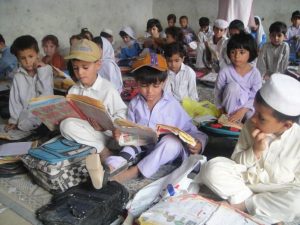 Pakistan has set out to provide at least 10,000 people from 12 different districts with free assistive products throughout 2019. 25 assistive products have been selected for this pilot, based on population need. Pakistan has been striving to make assistive products more accessible within the country, and this project represents a concrete step towards the implementation of a resolution on improving access to assistive technology in the Eastern Mediterranean Region and the realization of the Convention on the Rights of Persons with Disabilities. Read more about the project here.
Pakistan has set out to provide at least 10,000 people from 12 different districts with free assistive products throughout 2019. 25 assistive products have been selected for this pilot, based on population need. Pakistan has been striving to make assistive products more accessible within the country, and this project represents a concrete step towards the implementation of a resolution on improving access to assistive technology in the Eastern Mediterranean Region and the realization of the Convention on the Rights of Persons with Disabilities. Read more about the project here.
Assistive technology as key component of health and social services for older people
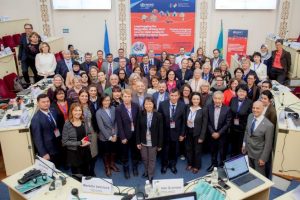 The workshop on ’Integrated delivery of health and social services for older people’ ´was held at the WHO European Centre for Primary Health Care in Almaty, Kazakhstan, in December 2018. The 3-day workshop was attended by policy makers, academics and experts and served as a forum for discussing future models and directions of long-term care within the WHO European Region. During the workshop, participants shared innovative approaches and lessons learnt from countries on integrated delivery of services for older people. AT has been included as a key component of health and social long-term care, as it plays a fundamental role in promoting individuals’ well-being and independence.
The workshop on ’Integrated delivery of health and social services for older people’ ´was held at the WHO European Centre for Primary Health Care in Almaty, Kazakhstan, in December 2018. The 3-day workshop was attended by policy makers, academics and experts and served as a forum for discussing future models and directions of long-term care within the WHO European Region. During the workshop, participants shared innovative approaches and lessons learnt from countries on integrated delivery of services for older people. AT has been included as a key component of health and social long-term care, as it plays a fundamental role in promoting individuals’ well-being and independence.
Update on WHO work on AT procurement
In November 2018, WHO, UNICEF, the Clinton Health Access Initiative (CHAI) and Swedish Standard Institute (SIS) met in Copenhagen to plan the development and piloting of tools to support countries in the procurement of assistive products within the AT2030 programme. During the meeting, Tajikistan,
South Africa and the Philippines were identified as potential countries for the piloting of these procurement tools. The meeting outcomes included also a work plan for the review of assistive products technical specifications. This meeting was fruitful in terms of strengthening the collaboration between WHO and key partners.
GATE team welcomes new member
Alice Guo joined the GATE team in January 2019 for 8 months, to support projects related to products and policy, both within the AT2030 programme and beyond. Alice will be supporting the development of policy briefs related to AT, as well as technical specifications for 30 priority assistive products. Alice obtained a MSc in Global Population Health at the London School of Economics and Political Science where she focused on evaluating policy impacts on health outcomes.
Links
UN Flagship report on Disability and Development 2018
Updates
World Confederation for Physical Therapy Congress: Geneva, Switzerland, 10-13 May 2019
GReAT Summit II: Geneva, Switzerland, 22-23 August 2019
iCREATe2019: Canberra, Australia, 26-29 August 2019
AAATE Conference: Bologna, Italy, 27-30 August 2019

